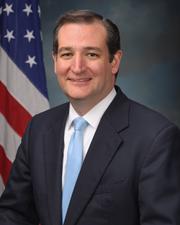0
0
0
A bill to amend the Clean Air Act to repeal the natural gas tax.
1/24/2025, 11:56 AM
Summary of Bill S 143
Bill 119 s 143, also known as the "Natural Gas Tax Repeal Act," is a proposed piece of legislation that aims to amend the Clean Air Act by repealing the tax on natural gas. The bill seeks to eliminate the tax that is currently imposed on the production and use of natural gas, which is a fossil fuel that is commonly used for heating, electricity generation, and transportation.
The proponents of this bill argue that the tax on natural gas is burdensome and hinders economic growth and job creation in the energy sector. They believe that by repealing this tax, it will incentivize the production and use of natural gas, leading to lower energy costs for consumers and businesses.
Opponents of the bill, however, argue that the tax on natural gas is necessary to fund important environmental and public health programs that are supported by the Clean Air Act. They believe that repealing the tax could have negative consequences for air quality and exacerbate climate change by encouraging the use of a fossil fuel that contributes to greenhouse gas emissions. Overall, Bill 119 s 143 is a controversial piece of legislation that has sparked debate among lawmakers and stakeholders. Supporters believe that repealing the natural gas tax will stimulate economic growth, while opponents are concerned about the potential environmental impacts of such a repeal. The bill is currently under consideration in Congress, and its fate remains uncertain.
The proponents of this bill argue that the tax on natural gas is burdensome and hinders economic growth and job creation in the energy sector. They believe that by repealing this tax, it will incentivize the production and use of natural gas, leading to lower energy costs for consumers and businesses.
Opponents of the bill, however, argue that the tax on natural gas is necessary to fund important environmental and public health programs that are supported by the Clean Air Act. They believe that repealing the tax could have negative consequences for air quality and exacerbate climate change by encouraging the use of a fossil fuel that contributes to greenhouse gas emissions. Overall, Bill 119 s 143 is a controversial piece of legislation that has sparked debate among lawmakers and stakeholders. Supporters believe that repealing the natural gas tax will stimulate economic growth, while opponents are concerned about the potential environmental impacts of such a repeal. The bill is currently under consideration in Congress, and its fate remains uncertain.
Congressional Summary of S 143
Natural Gas Tax Repeal Act
This bill eliminates a program administered by the Environmental Protection Agency that provides support for reducing methane emissions from the oil and gas sector. It also repeals a charge on methane emissions from facilities that contain petroleum and natural gas systems and emit 25,000 metric tons or more of greenhouse gases per year.
Current Status of Bill S 143
Bill S 143 is currently in the status of Bill Introduced since January 16, 2025. Bill S 143 was introduced during Congress 119 and was introduced to the Senate on January 16, 2025. Bill S 143's most recent activity was Read twice and referred to the Committee on Environment and Public Works. as of January 16, 2025
Bipartisan Support of Bill S 143
Total Number of Sponsors
3Democrat Sponsors
0Republican Sponsors
3Unaffiliated Sponsors
0Total Number of Cosponsors
45Democrat Cosponsors
0Republican Cosponsors
45Unaffiliated Cosponsors
0Policy Area and Potential Impact of Bill S 143
Primary Policy Focus
Alternate Title(s) of Bill S 143
A bill to amend the Clean Air Act to repeal the natural gas tax.
A bill to amend the Clean Air Act to repeal the natural gas tax.
Comments

Joaquin Wall
425
10 months ago
I don't think this bill is a good idea. It might make things harder for me and my family.

Bodhi Gibson
456
10 months ago
This bill good cuz no tax on natural gas means more money in my pocket!
Sponsors and Cosponsors of S 143
Latest Bills
Providing for consideration of the bill (H.R. 2550) to nullify the Executive Order relating to Exclusions from Federal Labor-Management Relations Programs, and for other purposes.
Bill HRES 432December 11, 2025
Southcentral Foundation Land Transfer Act of 2025
Bill HR 3620December 11, 2025
Enduring Justice for Victims of Trafficking Act
Bill S 2584December 11, 2025
VSAFE Act of 2025
Bill S 2683December 11, 2025
Veterans National Traumatic Brain Injury Treatment Act
Bill S 2737December 11, 2025
CARING for Our Veterans Health Act of 2025
Bill S 2397December 11, 2025
Health Records Enhancement Act
Bill S 2333December 11, 2025
RESPECT Act of 2025
Bill S 2807December 11, 2025
Review Every Veteran’s Claim Act of 2025
Bill S 1657December 11, 2025
ARCA Act of 2025
Bill S 1591December 11, 2025





